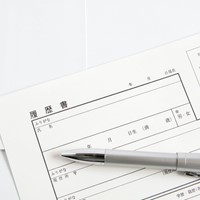How to Get a Part-Time Job for Foreigners and Students in Japan

This article is contributed by Nihon Arubaito.
Getting a part-time job in Japan, is not very difficult, almost 75% of foreigners and students easily get a part-time job there. Especially in big these like Tokyo, Osaka, and Yokohama. Moreover, the shortage of manpower in almost every domain due to the aging population of Japan is paving the path for foreign job.
It is important to remember that a good understanding of Japanese language and culture will greatly increase your chances of finding a part-time job in Japan. You should also be prepared to have a flexible schedule as part-time jobs in Japan may have varying hours and shifts.
>> What Kinds of Part-Time Jobs can Students Get in Japan?
If you are interested in studying at university in Japan, please check "List of Japanese Universities that Actively Accept International Students". There are also many articles covering professional training colleges (vocational schools) in Japan including culinary schools, fashion design colleges, manga/animation design schools, and more.
Part-Time Job Preparation
Before you start to search for part time jobs near you, it is better to equip yourself with the following essentials so that you won’t face any difficulty in getting a job.
My Number

The Japanese government has a special system to track an individual’s working hours, pay, and tax returns through a small plastic card known as My Number. It contains a 12-digit number which can be regarded as the security or tax number of an individual.
If you are planning to reside in Japan for a long period like on a student or work visa, then you will receive a letter with the title "Individual Number Notice". Data from several agencies are consolidated into one system by My Number. As a result, your income, working hours, and tax information are all accessible to the government.
Japanese Contact Number

It is highly recommended to get a Japanese contact number as soon as possible, there are only a few organizations or companies that contact through E-mail, and most of them prefer to call directly in a traditional way.
A Japanese Bank Passbook

Mostly in Japan salaries are directly transferred to bank accounts, so you need to get a Japanese bank account as soon as possible. There might be a few workplaces that can offer you a cash salary, but options are quite limited, so it is advised to get your Japanese bank book earliest.
Japan Resident Card or Passport

The employer in Japan usually requires a copy of your passport or Japanese resident card which is also known as zairyuu to check that you are not illegal or indulging in any fraudulent activities.
Resume in Japanese

A resume is the first step to getting a job, it is your representation in written form, which includes your skill sets, your education any prior experience or projects that you have worked on.
In Japan, you must make a resume in Japanese and specify all your qualities, but unlike English resumes which come in different patterns as per requirement, Japanese resumes commonly known as rirekisho, do not offer many choices, it needs to be built by using a specific format. And rirekisho requires some level of Japanese proficiency. I recommend you get help from any native speaker or use premade templates available on Google.
During the part-time job search, you’ll also encounter some companies that do not demand a resume, they directly go for interviews, but these sorts of companies have quite informal settings. But it is always recommended to go with a part-time job resume, as it will leave a positive impression.
Part-Time Job Rules
As a foreigner in any country, it is to good follow the rules and regulations of that state to prevent any trouble. Similarly, Japan has made few rules for part-time job seekers, especially for students and everyone must follow them.
Japan is considered an expensive country for students and their culture doesn’t allow them to work all the time and thus neglecting their studies. But part-time jobs are good in terms of interaction with the local community and getting some side income to support living. But before you apply for any job through jobs boards or Newspapers, below is a guide for you, so you don’t make mistake and end up having a fine or warning from the Japanese government. Give it a thorough read.
Always Apply for a Work Permit as a Foreigner Student
It is always recommended to apply for work permits as a foreign student in Japan from the immigration office to “engage in activities other than status qualification”, before applying for any jobs. Most workplaces will ask you for it. And you’ll get paid well with this work permit rather than low hourly wage exploitation.
And in most cases, the permission is easily granted by the immigration office. But if you are coming on a work visa or you don’t want to work as a part-time exchange student, then there is no need to get this special work permit.
There are two ways to apply for this special work permit:
・You can apply from the airport as soon as you land in Japan, just you have to fill out a form at the immigration desk, and they’ll put a black stamp on the back of your residence card and also a specific sticker on your passport.
・If you are already living in Japan, then you need to head towards the immigration office along with your passport, and residence card and there they’ll make you fill out a form.
It is better to directly apply from the airport as the immigration office is always too much crowded and can take months to process your application.
Another important thing to remember if your visa has expired or is about to expire, then you have to again apply for an extension with a work visa.
Working Hours for Student Visa

A full-time job holder usually works for 40 hours a week, but for student visa holders this limit is of only 28 hours. No matter whether you are doing a single job or two-part time jobs, the total working hours should be Twenty-eight. This is because Japan wants their students to make studies their priority and work only to meet their day-to-day expenses rather than for building wealth or remittance. Moreover, if you wish to work full-time as a student there is a high chance that you’ll be compromising on your studies.
But if you are planning to stay in Japan during long vacations of summer or winter which is about 3 months, then you can work for 40 hours a week, but in that case, the educational institute in which you are enrolled need to issue a letter of holidays.
An important point to note, all these perks and permissions are valid till you are enrolled in any educational institute, as soon as you graduate or drop out, your student visa status will change, and it becomes illegal to work. In short, never compromise on your studies for part-time jobs.
















